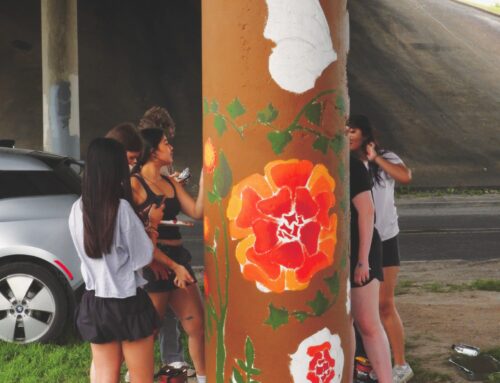At least eight City Council District 9 candidate forums were held in recent weeks, and dedicated Advocate political writer Sam Gillespie sat through six of them (whew!) as the five candidates took turns answering questions and touting their qualifications. (It’s the reason Gillespie is knowledgeable enough to provide this sharper portrayal of each candidate.)
Lakewood Neighborhood Association‘s forum was one of only a couple Gillespie wasn’t able to attend. Luckily, Lakewood resident David Aspinall was kind enough to record the forum for us (and for anyone else who wants to listen to it). Lakewood covered some familiar topics — qualifications, district 9 priorities, economic growth, the Trinity toll road, White Rock Lake — and the candidates’ answers mostly echoed what they have stated at other forums. The neighborhood association also pressed them specifically about a zoning proposal at Lakehill Preparatory and historic landmark status for the Lakewood Theater, both of which we’ll have more on soon.
One twist, however, on the traditional forum approach of asking a question, then giving each candidate a couple minutes to respond, was that Lakewood also asked questions specific to each candidate. We’ve summarized those questions and answers below:
Jackson is one of two district 9 candidates that has expressed support for Trinity toll road via his support of the Balanced Vision Plan (the other is Darren Boruff), even though there is “continued controversy and mounting opposition from your constituents,” as the association put it. Lakewood also posed the issue of economic development and expressed concerns over “back hall negotiations by developers and city planners that are not transparent to the citizens of this city.” How can we be assured that your decision on other controversial development projects be in sync with your constituents when there is so much controversy over the toll road?
Answer: “That’s where public needs and public forums come into play. I’ve been president of over 10 different homeowner associations throughout the years, and I know the value of communication, which is so key, especially today. One thing I want to do when elected is to be more proficient with the pen — writing articles every month on different topics.” As far as backroom deals, Jackson said, “In our particular district, people will stand up and down [for something]. If you look at Ferguson Road moving forward, it’s not a backroom deal but a very public vision plan on what the community wants that to look like because there will be need to be some rezoning there. You have miles of strip retail, and that’s obsolete. That’s not how we shop anymore. We need some people to come together to re-look at that.” In terms of economic development, Jackson pointed out that construction cranes are not currently downtown but in Frisco, Plano and Prosper; and downtown office space now has cheaper rents than its counterparts in the suburbs. “We need economic vitality downtown, and not with backroom deals but in very public deals because to get these, Dallas is going to have to say, ‘Please come,’ in a very public way, to get these tenants to come back downtown. … We need economic vitality because if we don’t, we will continue to bear the burden as homeowners of our tax base as opposed to commercial development which is not the way it should be.”
Clayton has been endorsed by three current city councilmembers, and the Lakewood Neighborhood Association believes the city needs leaders who are “good critical thinkers and show integrity and commitment to the constituents of District 9.” How can we be assured that your voice will be one that that has the ability to make sense of things based on your ability to do your own research and ensure your decision represent the values of your district while being independent from those supporters when necessary?
Answer: “I have their support because I was out front and against the Trinity Tollway from the beginning.” In the 2007 referendum, “this was the No. 1 district out of 14 against the tollway, and those numbers have only gone higher. I think if you’re going to say who’s going to advocate most for the district and listen to customers most, if there was anybody in this race who I thought would do that more than I would, I wouldn’t be running. I choose to send my kids to public school here, so I get it, I understand the challenges; I have my business here, we have over 1,500 clients within a 2-square mile radius of this area. I’m my own man. I am incredibly appreciative of their support, but at the end of the day, when I’m on council they have to seek my vote, too, and I have to seek their vote. I do hope we have some commonalities — and we will with the Trinity Tollway, for one — but if you don’t think there’s already alliances on City Council and people taking orders from interests more concerned about their pocketbooks than you, then folks, you’re naïve. I’m running because I want to change from a top-down philosophy where they tell you what you can have for your life to a philosophy where they actually listen to what you want.”
Merten touts his City Hall experience working for Mayor Mike Rawlings as a key qualification for his City Council candidacy. How can you distinguish yourself from political influence from the mayor and other leaders you’ve worked with at the city with an independent voice? Define how the experience of being behind the scenes at City Hall would benefit in your decision making?
Answer: “There are a lot of things that I don’t agree with, with the mayor, and one of those things is the toll road. … When he decided to take on the toll road as his new push, regardless of whether I was going to run for council or not, I was going to leave his office because we are on such opposing sides of that. He’s its biggest cheerleader; I’ve been fighting against it for years. It’s almost like he’s a regional mayor, the way he celebrates what happens in other cities. I’m a Dallas-first guy; if it’s not good for Dallas, I’m not worried about it. Clearly a lot of [other councilmembers] are supporting Mark, so I’m not going to be beholden to other councilmembers, and as far as the benefit that brings, I would say, ask any councilmember who has served any significant amount of time and ask them what their first term was like. Most of them are going to tell you it was a real struggle because there’s so much information that you have to learn. You have to balance a $2.8 million budget when you walk in the door. We’re going to have to deal with long-term systemic problems — poverty, transportation. That’s a lot to digest for someone who hasn’t been around City Hall the way that I have. Not only do I have that experience inside City Hall — which was only a year, by the way; it’s not like I’m a 10-year entrenched bureaucrat — but I was also a reporter asking really tough questions about the decisions being made by the city and the decisions the Mayor Leppert was making at the time. I’ve got a history of really calling people out and asking key questions, and I’ll continue doing that as your councilmember.”
Most of your running mates state that experience is needed more than ever on the City Council, and yet you are an unproven in prior public office or civic involvement. How can we be assured that you have the ability to navigate the complex bureaucracy at City Hall?
Answer: “Well, I’ve been in a naval war headquarters and navigated that pretty good, so … I’ve been down to City Hall a couple times in a professional situation as a product distribution manager for the Observer and the Paper City magazine, and you can see that the elected officials are prancing. You can work with them and trade baseball cards about propositions and stuff you want to pass, however, the people to go to are the permanent staff members — the people there before, during and after the elected officials. They know all about what happened in the past, what’s been tried before, and can suggest ways to implement and expedite.”
Twenty-five years ago there was a group altercation in California and you were fined for misdemeanor. Can you explain this?
Answer: I was on vacation in southern California and a fight broke out, and I was trying to break it up — a friend of mine’s girlfriend was involved — and they decided that to get the story straight, they would take us all down and get our stories. They did that and dismissed me, and I had a misdemeanor filed. That’s embarrassing — thanks for bringing that up! [audience laughter]
Lakewood also noted Boruff’s 2008 Park Board vote to allow the City of Dallas to lease the subsurface mineral rights for over 5,000 acres of Dallas parkland and allow horizontal drilling. That decision set the stage in 2011, after you left the board, to redraw plans to allow drilling on top of parklands and floodplains, such as the Trinity River parklands. Can you explain how that decision benefited the citizens of Dallas and the ecosystem of the parks, and surrounding areas of our parks?
Answer: “If you remember what happened in 2007-2008, there was a big recession. We were laying people off. We had friends, family, neighbors losing their jobs. We were cutting the budget for the Park Board from almost $90 million down to $60 [million]. We were closing recreation centers; we were closing libraries; we were closing after-school programs where the kids didn’t have anywhere else to go; we were closing fields; we were shutting down jobs and opportunities and also taking furloughs. It was a terrible time to be part of the Park Board, tough decisions for tough times. We were approached by an entity who wanted to fund this, almost $40 million, to lease the subsurface rights thousands of feet below the surface for horizontal drilling. I can’t speak to what happened after I was gone, but on the Park Board, we didn’t vote for any surface rights, we didn’t vote for any fracking, for any things that are out in the media right now. What we did was voted to accept that money so we could have public safety, so we could have parks and rec centers open, so we could get somewhat back to normalcy in the park and recreation department that plays a vital role in our quality of life.”
[audience question specifically for Boruff]I have read, and I would just like confirmation and clarification, about your role in the Dallas Arboretum’s plan to pave over Winfrey Point and to displace the Little League fields and instead build a garage or parking facility for the arboretum.
Answer: “When I was on the park board, I worked hard with the community to make improvements that the community wants. The Dallas Little League came to me and said, ‘We’re having a hard time finding a place to play.’ They had 400 kids, they were trying to make the league work and they were having a tough go of it. I said earlier that I’m tired of losing to the suburbs; all of our kids were playing Little League in the suburbs, and I wanted them playing in our backyard. Well, we were able to put the Little League fields at Winfrey Point, working with Park Board, working with the community and eventually working with the Dallas City Council to get those approved. That’s one of my proudest achievements being on park board, and any day of the week you can ride by there, drive by there, jog by there and see kids playing, parents outside and moms yelling — that is, to me, what it’s all about. That’s why I’ve worked hard the past 12 years to improve our district. So the notion that I would want to move those is absolutely false. [Dallas Arboretum CEO] Mary [Brinegar] came to me with a question about what to do with the overflow parking, and she presented the idea of Winfrey Point and said, ‘What do you think about this?’ and I said, ‘Mary, I would absolutely be against it.’ So as far as taking over Winfrey Point or paving it, or moving the baseball fields, I absolutely had nothing to do with it.”

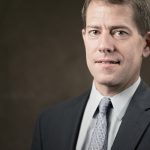 Christopher Jackson
Christopher Jackson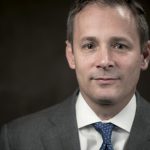 Mark Clayton
Mark Clayton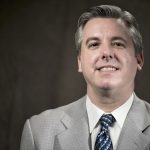 Sam Merten
Sam Merten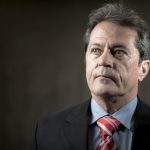 Will Logg
Will Logg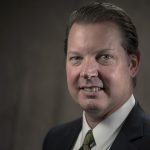 Darren Boruff
Darren Boruff